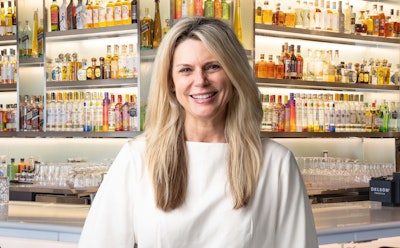
Tracy Bussan is the senior vice president of brands in culture for Diageo, the world’s largest spirit maker behind brands like Johnnie Walker, Casamigos, Guinness, and Tanqueray. There, she is responsible for leading innovative and authentically driven cultural opportunities to ensure Diageo’s portfolio of brands remain relevant and connected to the community through culture. She’s based in New York.
Think of the events and marketing campaigns in the last year that made the biggest splashes. Sure, a big budget probably contributed to their success, but it likely wasn’t the only factor. Purpose, authenticity, community connections, and utilizing new tech were surely at play. Cultural relevance in today’s events is pivotal—attendees want to celebrate things like diversity and sustainability, and they aren’t afraid to voice their opinions on the values that matter most to them. Here’s how to make sure your events and experience remain culturally relevant in 2023...
Have purpose at the heart of your brand experience. It’ll drive consumer engagement.
It’s so important to ensure your brand experiences are intrinsically linked to your brand’s purpose. Consumers are yearning to understand what your brand stands for and what you believe in, which is something so much bigger than just your products and services.
When you’re able to create a vibrant brand experience with meaningful and purpose-driven communication at the core, that’s when magic happens, and you uncover a deeper connection with your audience.
Culturally connect to a consumer’s value system.
When it comes to brand choice, we all know that consumers have more options today than they ever have. And people turn to brands that seek to make a difference in the world and that share their same core values. When it comes to diversity, equity, inclusion (DEI), and sustainability, people expect companies to lead and to create change—to truly walk their proverbial talk. Therefore, you must commit to connecting with consumers’ value systems and bringing this concept to life in an authentic way. This is a critical piece of any experiential strategy and should be put at the forefront of planning.
Build cultural credibility with consumer-centricity.
Staying on the pulse of culture is what allows us to meaningfully show up in the spaces and places our consumers live, connect, and socialize.
With that, culture is often ignited within the heart of local communities. When you’re able to create a brand experience that is rooted in local tradition, you’re going to drive heightened relevance, positive impact, and strong emotional connection with your audience.
Leverage the power of Web3 to fuel the future of experience.
Technology is one of the most important drivers of culture today. As innovation in Web3 continues to evolve, there are so many ways for brands to tap into this growing space—digital collectibles, artificial intelligence, cryptocurrency...the opportunities are honestly endless. Be sure to capitalize on this current inflection point to think about your events in new and different ways.
Don’t forget the importance of authenticity.
Every experience you create—whether IRL or in the metaverse, whether you’re making culture by creating your own experience or meeting culture by connecting to an existing tentpole—your experience needs to feel authentic in all that it does.
The ability to create an experience that builds a connection to new communities or generates cultural currency isn’t necessarily based on budget. It’s based on having an authentic understanding of your brand—its unique purpose and the willingness to pursue and add value to the passions of your audiences.
Lastly, I’m of the belief that experiential participation in culture can and should take many forms, both big and small, both planned and reactive. A culture-first approach shouldn’t just be a mechanism for success, it should be a mindset.



















